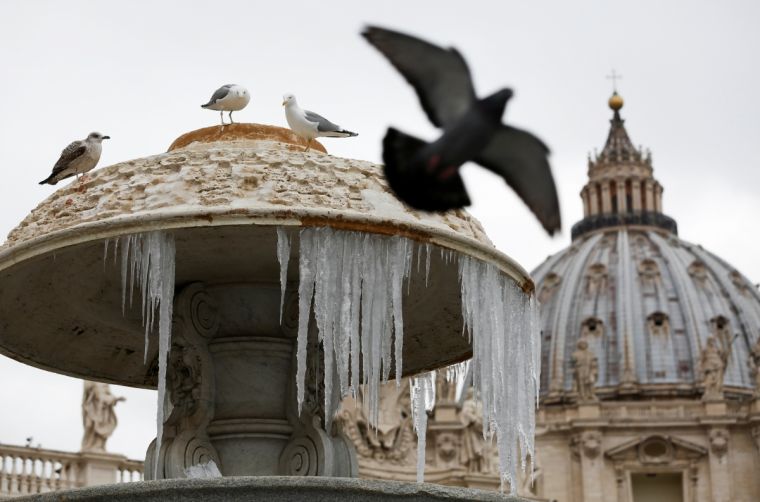Vatican shuts down fountains amid Italy drought, in line with Pope Francis' environment teachings

Amid a prolonged drought across many parts of Italy, the Vatican is shutting off its famous fountains in a move described by officials as being in line with Pope Francis's teachings and emphasis on the environment.
The Pope's spokesperson and Vatican Radio said the decision was consistent with Francis's ecological fears outlined in his 2015 encyclical, which denounced wasteful practices and highlighted the importance of clean drinking water.
The ongoing drought, which began with the third-driest spring in Italy in 60 years, has so-far hit two-thirds of farmland and has cost Italian agriculture some €2bn ($2.3bn; £1.8bn).
All one hundred fountains at the Vatican, including two Baroque masterpieces, will be switched off.
The Vatican spokesperson Greg Burke told Reuters that it was the first time anyone could remember this happening, and that the move was the Vatican's way of showing solidarity with Rome during the emergency.
'This decision is very much in line with the Pope's thinking on ecology: you can't waste and sometimes you have to be willing to make a sacrifice,' Burke added.
Vatican Radio said that the Pope's Laudato Si encyclical 'recalls how the habit of wasting and throwing away things has reached unheard-of levels, while clean drinking water represents a matter of primary importance because it is indispensable for human life and for supporting ecosystems on land and sea'.
In Rome, where later this week city authorities will decide whether to introduce drastic water rationing, some of the city's famed drinking fountains have already been shut off. There has been lower-than-average rainfall in the capital over the past two years.
Meanwhile, a state of emergency was earlier declared in two northern provinces of the country.
Earlier this month in southern Italy, hundreds of people were evacuated as fire-fighters battled wildfires.
Dairy farmers and those growing olives, tomatoes and wine grapes are among the most affected, the farmers' association Coldiretti has warned, amid fears that poor harvests could push prices up.











